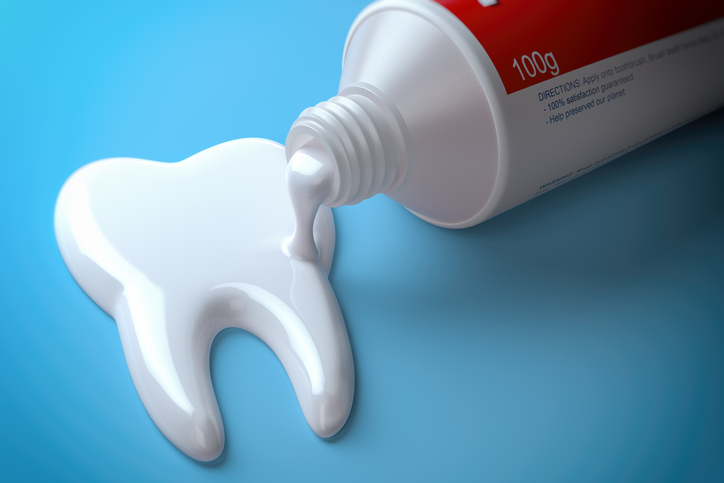
Strong teeth need a healthy amount of fluoride, so how do you know you’re getting enough?
Fluoride is a naturally occurring mineral found in water, soil, plants, and rocks. But you’ve probably heard about fluoride often as a weapon in the fight against tooth decay.
The explanation is simple: Fluoride is also present in our teeth and bones. When you apply fluoride to your teeth, it strengthens your tooth enamel. Stronger tooth enamel can fend off the corrosive effect of bacteria that causes cavities. And cavities are typically the first sign you aren’t getting enough fluoride.
How fluoride deficiency affects your teeth
Sugary and starchy foods contribute to the development of bacteria on your teeth. Bacteria that isn’t cleared away by regular brushing or cleaning forms an acid that eats into your enamel. Over time, cavities form within the enamel, leading to pain and sensitivity. If left untreated, the decay can reach the next layer of your tooth (the dentin) or the inner portion (pulp). At that point, an abscess may form around the tooth, or you may need a root canal.
Fluoride can stop that process. It remineralizes your enamel, giving it the strength to prevent cavities. Fluoride may even heal a cavity if the decay is in its early stages.
Where can you get fluoride?
Getting enough fluoride isn’t a problem for most people. But if you think you may have a fluoride deficiency, you can easily find ways to boost your intake. Five common sources of fluoride included:
Community Water Supply. For decades, towns and cities have added fluoride to their water supplies, and for good reason. Studies have shown adding the mineral helps reduce cavities in young children. To check if your tap water is fluoridated, contact your local water company or visit this CDC website.
Community water supplies contain 0.7 parts per million of fluoride. At that level, it’s unlikely you will ingest too much fluoride. Although rare, young children may consume an excess of fluoride if they swallow toothpaste with fluoride. This condition, known as dental fluorosis, usually appears as white spots on the teeth and occurs most frequently in children under age 8. The condition isn’t considered harmful.
Toothpaste & Rinses. Today, commercially available toothpaste and mouthwashes contain fluoride. Check the ingredient list, and brush with a soft-bristled brush to minimize abrasion on the teeth.
Fluoride Treatments. If you or your child are at high risk of cavities, your dentist can apply fluoride treatments to the teeth that take the form of either a foam applied to the teeth or a fluoride rinse. Your dentist may also directly put varnish on the teeth. To give your teeth time to absorb the fluoride, avoid eating or drinking for at least 30 minutes afterward.
Fluoride Supplements. Your local drugstore may stock lozenges, tablets, or liquids containing fluoride. Those who suffer from dry mouth or are undergoing radiation that saps moisture out of the mouth could also benefit from a prescription fluoride gel. Talk to your dentist or physician beforehand about taking any at-home supplements.
Bottled Water. If you skip water from your tap and drink mostly bottled water, you may miss out on fluoride. Check whether your favorite brand contains fluoride, or contact the company to get more information on its fluoride content.
Are you getting enough fluoride?
Schedule an appointment at Espire’s Colorado Springs location today! Our highly trained dentists can check your teeth and determine whether you’re getting enough fluoride to combat cavities.
Don’t live near our Colorado Springs office? Find one of our other locations near you.
Colorado Springs
8610 Explorer Drive #315
Colorado Springs, CO 80920


